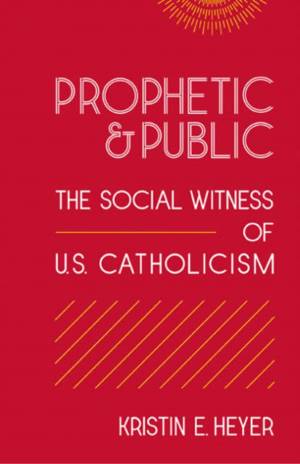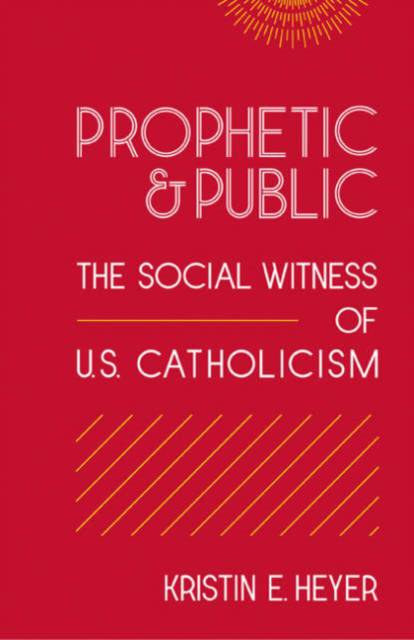
- Retrait gratuit dans votre magasin Club
- 7.000.000 titres dans notre catalogue
- Payer en toute sécurité
- Toujours un magasin près de chez vous
- Retrait gratuit dans votre magasin Club
- 7.000.0000 titres dans notre catalogue
- Payer en toute sécurité
- Toujours un magasin près de chez vous
Description
The United States was founded on a commitment to religious tolerance. Based on this commitment, it has become one of the most religiously diverse and religiously observant liberal democracies in the world. Inherent in this political reality is the question, "What is the appropriate relationship between religious beliefs and public life?" This is not a new question, but in contemporary US politics it has become a particularly insistent one. In this intelligent, wide-ranging book, Kristin Heyer provides new and nuanced answers.
Prophetic and Public employs the discourse of public theology to consider what constitutes appropriate religio-political engagement. According to Heyer, public theology connects religious faith, concepts, and practices to their public relevance for the wider society. Her use of public theology concepts to address the appropriate possibilities and limits for religio-political engagement in the United States is both useful and enlightening.
Heyer approaches the relationship between public morality and religious commitment through the example of the Catholic Church. She looks at two prominent Catholics-Michael Baxter and Bryan Hehir-as a way of discussing norms for practice of public theology. Heyer also analyzes case studies of three US Catholic advocacy groups: The US Conference of Catholic Bishops, NETWORK, and Pax Christi USA. Through her analysis she shows the various ways that the organizations' Catholic identity impacts their social and political efforts. From her investigations come norms that define possibilities and limits for political actions based on religious conviction.
This deeply thoughtful book examines what is truly fundamental and inescapable about public life and private religious belief in the United States. In doing so, it makes skillful use of the tools of theology, philosophy, law, and advocacy to demonstrate that the Catholic Church reveals great diversity in its public theology, providing legitimate options for a faithful response to urgent political issues.
Spécifications
Parties prenantes
- Auteur(s) :
- Editeur:
Contenu
- Nombre de pages :
- 252
- Langue:
- Anglais
- Collection :
Caractéristiques
- EAN:
- 9781589010826
- Date de parution :
- 02-06-06
- Format:
- Livre broché
- Format numérique:
- Trade paperback (VS)
- Dimensions :
- 153 mm x 230 mm
- Poids :
- 399 g

Les avis
Nous publions uniquement les avis qui respectent les conditions requises. Consultez nos conditions pour les avis.






